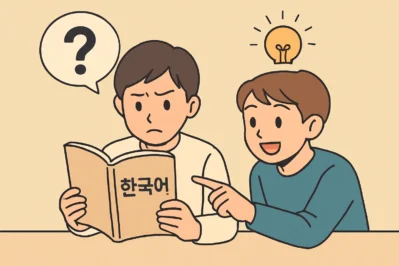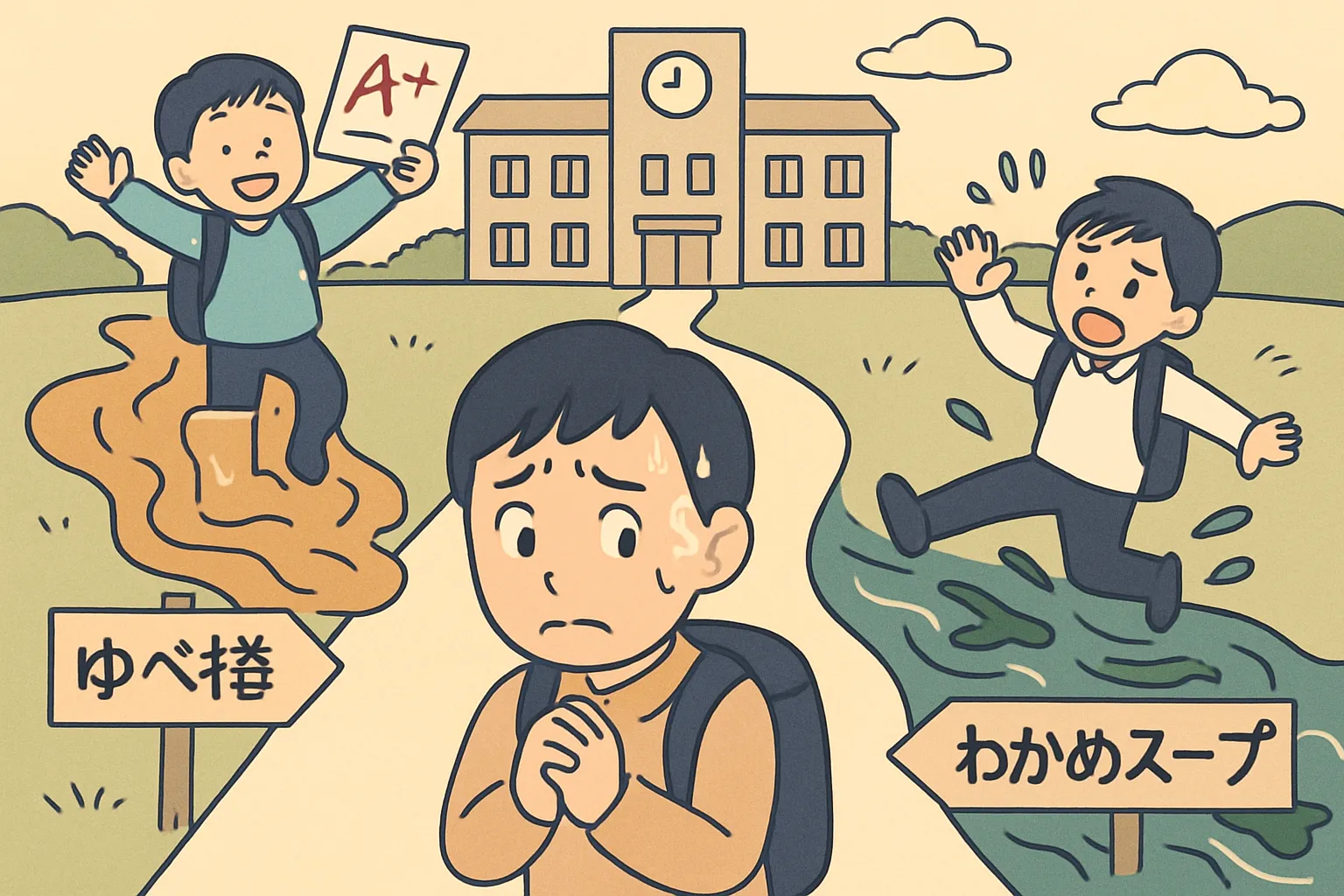Stuck on Your Korean Homework? Ask Like a Native!
Hello! This is Everyday Korean (매일한글), here to upgrade your Korean skills!
Ever feel stuck while doing your Korean homework? You’re not alone! Knowing how to ask for help is a super important skill. Have you seen those popular “gong-bu vlogs” (공부 브이로그) on YouTube where Korean students study for hours? You’ll often see them asking friends for help. Today, we’re going to learn the essential phrases you need to ask about your homework, so you can sound just like them!
Let’s get started!
Core Expressions You Need to Know
Here are three key phrases to help you conquer your homework!
1. 질문 있어요 (Jilmun isseoyo)
- Romanization: Jilmun isseoyo
- English Meaning: I have a question.
- Detailed Explanation: This is the most basic and essential phrase to learn! It’s the perfect way to get a teacher’s or a friend’s attention before you ask your real question. It’s polite and can be used in almost any situation, from the classroom to a study group with friends.
2. …이/가 너무 어려워요 (…i/ga neomu eoryeowoyo)
- Romanization: …i/ga neomu eoryeowoyo
- English Meaning: …is too difficult.
- Detailed Explanation: This is how you explain what your problem is. You just put the noun you’re struggling with before the phrase. If the noun ends in a consonant, use 이 (i). If it ends in a vowel, use 가 (ga).
- Example 1: 숙제가 너무 어려워요. (Sukje-ga neomu eoryeowoyo.) = The homework is too difficult.
- Example 2: 이 문법이 너무 어려워요. (I munbeop-i neomu eoryeowoyo.) = This grammar point is too difficult.
3. 좀 도와줄 수 있어요? (Jom dowajul su isseoyo?)
- Romanization: Jom dowajul su isseoyo?
- English Meaning: Can you help me a bit?
- Detailed Explanation: This is a friendly and casual way to ask a friend for help. The word 좀 (jom) means “a bit” or “please,” and it makes the request sound softer and more polite. It’s perfect for asking a classmate or a friend for a little assistance.
Example Conversation
Let’s see how these phrases work in a real conversation! Imagine two friends, Sora and Minjun, are studying at a cafe.
- A (Sora): 민준아, 나 질문 있어요.
- (Minjun-ah, na jilmun isseoyo.)
- Hey Minjun, I have a question.
- B (Minjun): 응, 뭔데?
- (Eung, mwonde?)
- Yeah, what is it?
- A (Sora): 이 한국어 숙제가 너무 어려워요. 좀 도와줄 수 있어요?
- (I hangugeo sukje-ga neomu eoryeowoyo. Jom dowajul su isseoyo?)
- This Korean homework is so difficult. Can you help me a bit?
- B (Minjun): 아, 이거! 물론이지. 내가 설명해 줄게.
- (Ah, igeo! Mulloniji. Naega seolmyeonghae julge.)
- Ah, this one! Of course. I’ll explain it to you.
Culture Tip: The Korean “Study With Me” Culture
In Korea, studying together is very common. You’ll see students in cafes, libraries, and special study rooms called ‘독서실’ (dokseosil).
- Trend Alert: “Gong-bu vlogs” (공부 브이로그) or “Study With Me” videos are a huge trend on Korean YouTube. People film themselves studying for hours, and others watch for motivation. In these videos, you’ll often see friends taking breaks and helping each other with difficult problems.
- Pro Tip: When a friend helps you with your homework, it’s a common and very nice gesture to treat them to a coffee or a snack as a way of saying “thank you.” This shows your appreciation and is a big part of Korean social culture! If you use the phrase “좀 도와줄 수 있어요?“, be ready to say “내가 커피 살게!” (Naega keopi salge! – I’ll buy you coffee!) afterwards.
Let’s Review & Practice!
Great job today! You learned three amazing phrases to ask for help with your homework.
- 질문 있어요. (I have a question.)
- …이/가 너무 어려워요. (…is too difficult.)
- 좀 도와줄 수 있어요? (Can you help me a bit?)
Now, let’s test your knowledge!
Practice Question:
How would you tell your friend, “This Korean word is too difficult,” and then ask for help? Try to combine two phrases we learned today!
Leave your answer in the comments below using the phrases you learned. We’d love to see you try! Keep up the great work, and see you next time! 파이팅 (Fighting)






